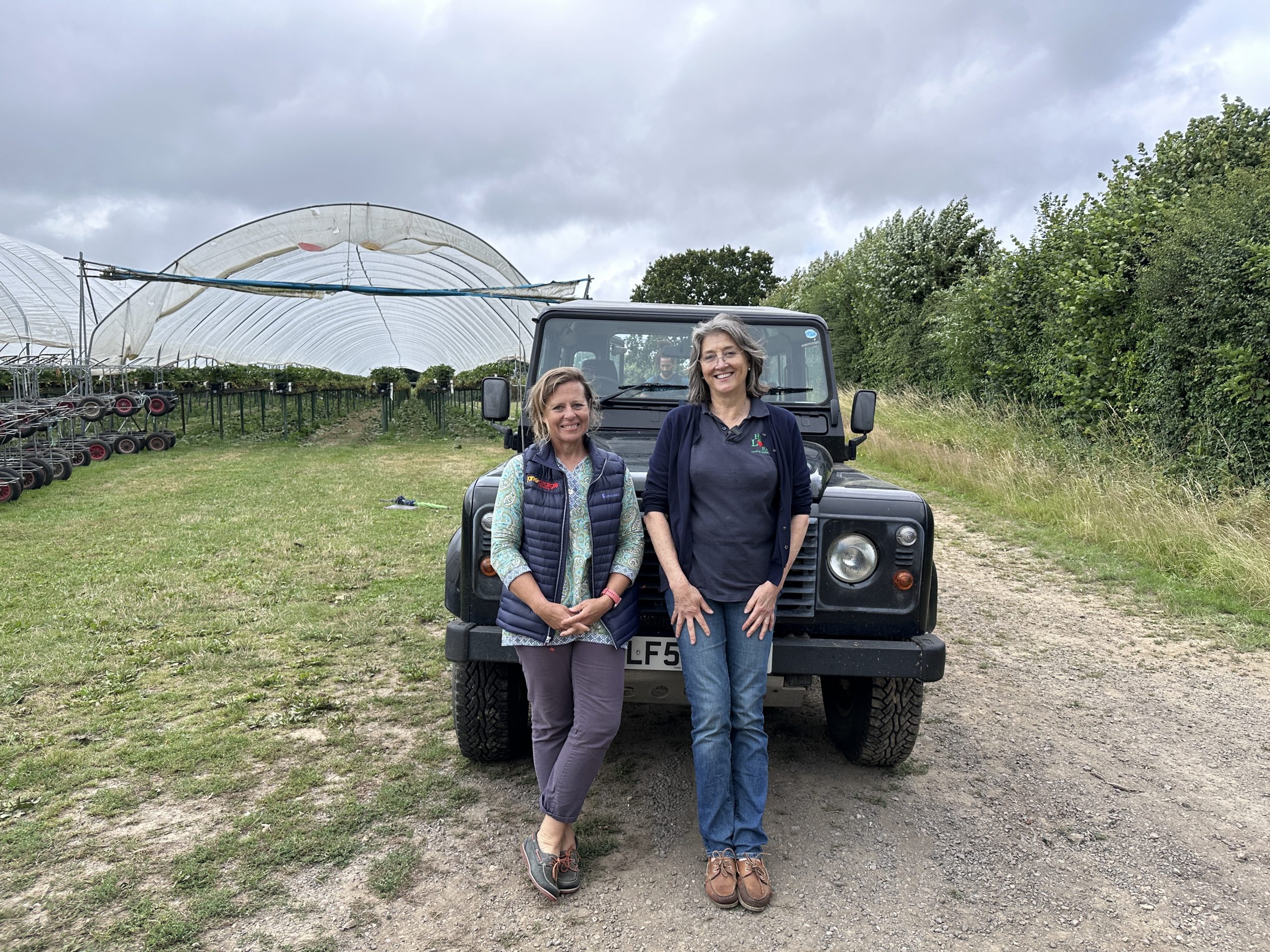Earlier this week I was in Kent filming a soft fruit grower for a client. Marion Regan, and her husband, Jon, now lead the family business, which started in 1893, growing strawberries, raspberries and blackberries, as well as vines.
The visit was such a powerful reminder of how farmers embrace the deep history of their farms, their families and while always adopting the latest advances in production techniques. Over the years of telling their stories, farmers’ ingenuity and willingness to try new technologies, never ceases to amaze me.
The philosophy of Hugh Lowe Farms has always been to adopt new approaches to ensure the supply of the freshest, best tasting berries to a range of retailers, including M&S, Waitrose and Tesco, as well as wholesale and local retailers.
A 30-year history with Wimbledon Tennis Championship is something that Marion is immensely proud of, and she says epitomises what the strawberry exists for – warm summer days. She supplies 50 tonnes to the London event annually.
Strawberry production at Hugh Lowe Farms runs from May to November and yields 5,000 tonnes annually. Variety choice is crucial, and Marion’s membership of the Berry Gardens Grower Group gives her access to Driscoll’s varieties – a global marketing company – as well as varieties like Malling Centenary developed close to the farm at East Malling Research – now part of NIAB.
Marion has two types of strawberries to span the season – everbearers which flower and fruit repeatedly through the season and Junebearers which crop heavily for just a few weeks. Two of her chosen varieties – Driscoll’s Zara and Driscoll’s Jubilee – are what Marion describes as the ultimate berries – sold in supermarket premium ranges because they are exceptionally sweet.
But it’s the technological mindset of what this farm is doing that really captivated me and reminded me of the power of shared mission partnerships intent on improvement.
Hugh Lowe’s traditional looking polytunnels are peppered with progress. Robotic pickers – a partnership with Dogtooth technologies – are now in use, and in the same polytunnels, other robots apply ultraviolet light three times daily, for mildew control. And in further partnership with Polysolar, transparent solar panels have been fitted to some of Marion’s tunnels to provide power generated in situ for equipment like pumps and the robots.
Biologically, the innovation was also staggering – the use of biological control and the recycling of water is impressive. The smart irrigation system uses sensors and watering probes to supply just enough nutrient-rich water to produce the fruit, without waste.
Marion’s approach to their strawberry growing substrate is also super-sustainable, it is coir based – a by-product of the coconut processing industry – and via a method that they have developed on farm with ReCoir, their supplier, clean and reuse the substrate for five growing seasons.
Closer to the consumer, I also quizzed Marion about packaging, asking her what was coming next, she said that there are multiple materials being used, but for soft fruit it is still the recycled PET plastic punnet that is the most sustainable material, because it can be widely recycled and because it best protects tender berries during transportation and sale.
As I drove away from Marion’s strawberry fields, I couldn’t help but wonder about the future of this vibrant business, with its multicultural workforce, whether in 20 years’ time it might be operated by drones, sensors and robots. Ringing in my ears was Marion’s emphatic belief that so much of great berry growing – and great farming – can never be done without the human eye, hand and experience; and as much as I love technology, I was very heartened to hear this
